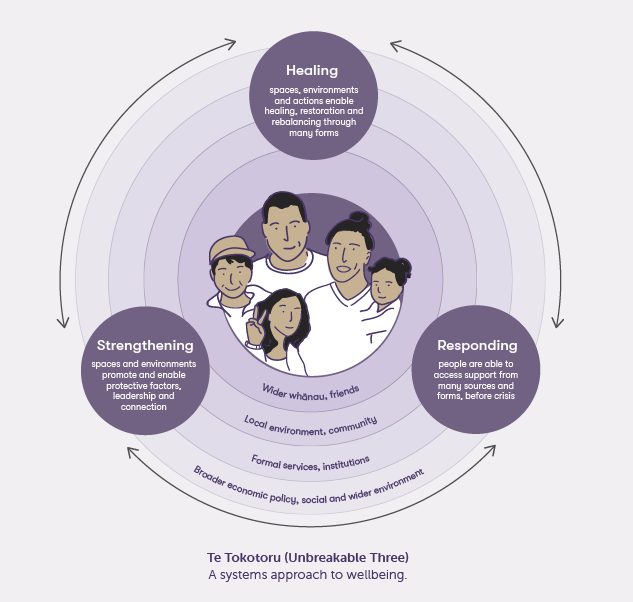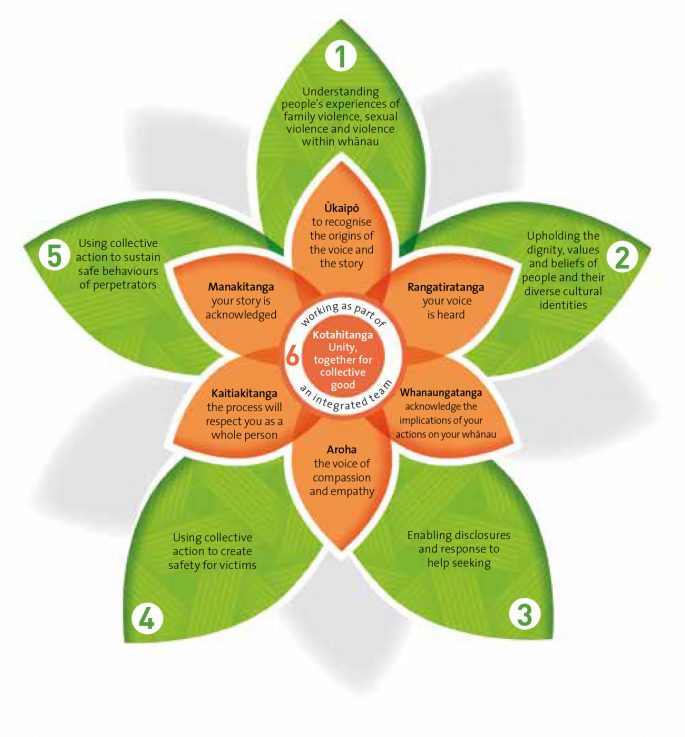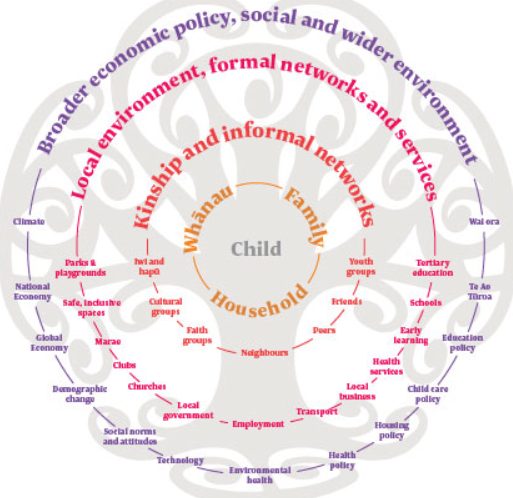North Shore Family Violence Prevention Initiatives
Te Aorerekura
National Strategy to Eliminate Family Violence and Sexual Violence
Moemoeā – Dream and vision
This Moemoeā or dream was created with tangata whenua, specialist sectors, and communities.
At the heart of this Moemoeā is ora – meaning to be well and thriving, to have mana enhanced and restored, to experience safety in all parts of life. Mana and ora are important parts of a person’s wellbeing, relationships and connections.
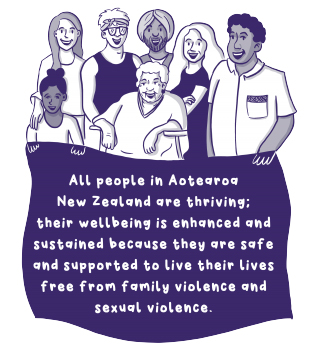
North Shore Family Violence Prevention Network
There are approximately 48 regional Family Violence Networks in New Zealand. Formerly known as the Te Rito Networks, they are made up of a range of government and community agencies who work in family violence. The Networks support the delivery of community-based family violence prevention initiatives, recognising that addressing family violence requires effective collaboration and strengthening communities’ capacity to work together.
Activities that Family Violence Networks undertake include:
- Coordinating local agency responses and services – Ensuring that government and community agencies share resources, work together to reduce service fragmentation, and improve their capability to provide quality effective family violence services
- Improving practice of organisations – training; developing good practice; collaborative policies; monitoring & research
- Supporting projects that help survivors and perpetrators, children, family and whānau – identifying service gaps, developing new collaborative services
- Promotion – engaging with media; promoting available help and services; eNews
- Building relationships inside and outside the sector – building the network and encouraging new members, our vision is to strengthen the network to become agents of social change. To engage with those outside the specialist family violence sector — the wider community, business, education and the health sector
- Working to mobilise communities and prevent family violence (primary prevention) – Facilitate an increased community understanding, ownership and leadership of family violence prevention, with improved efforts to change the attitudes and behaviours that perpetuate family violence. This includes campaigns; community education; and working with businesses, churches, marae, sports groups, schools, ethnic community groups to prevent family violence. Developing community led, place based initiatives, events and activities developed to promote protective factors, activating an ecology of support: strengthening, responding and healing.
Waitemata Wellbeing: A collective district-wide Family Violence Response
Waitemata Wellbeing is a partnership between North Shore Family Violence Prevention Network, the WAVES (Waitakere) Network and Te Rito Rodney.
Our integrated community response forum provides community and government agencies opportunity to share response, capability, capacity, identify emerging local needs / trends and explore collaborative solutions. It was activated in response to the coronavirus pandemic.
The forum also supports professionals working to support others during very exceptional circumstances.
Safer Whānau
The Safer Whānau project is an interagency partnered response to family violence on Auckland’s North Shore. This innovative service involves working collaboratively with Te Puna Hauora and key social service providers to provide a wrap-around holistic whānau centred service. Whānau, now more than ever, present with multiple issues as economic pressures compound whānau stresses and difficulties. Families referred to family violence services often require the involvement of Work and Income, Police, Health, Oranga Tamariki, Ministry of Justice and multiple community agencies to effectively address all their needs.
The Safer Whānau vision is to ensure the needs of those who have experienced family violence are met through holistic support and joined up responses which are effective, culturally appropriate and bring about safety and well-being /mauri ora. Priority is given to whānau with vulnerable infants, children and young people who have witnessed family violence and do not meet Oranga Tamariki care and protection thresholds (i.e. early intervention). MSD funding resources the collaborative whānau plans developed.
The response represents an interfacing of the North Shore Family Violence Prevention Network with an integrated community response model of service provision. One Coordinator oversees both initiatives, developing these community resources to be inherently complementary of one another. The communication and collaboration within the Network aims to achieve a better integration of services, reduce service fragmentation, ward against duplication and/or gaps in services and efficiently use resources to support whānau.
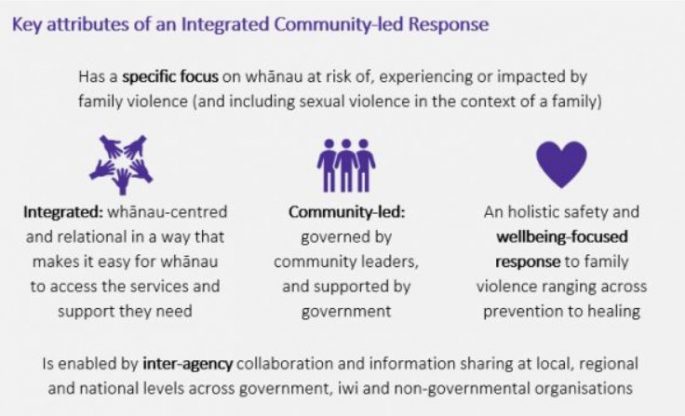
Child Focus Group and Youth Cyber Safety Forum
Child Focus Group (CFG) was formed in October 2010 with the overarching goal of strengthening the Auckland North community’s ability to effectively support children who have been affected by family violence and prevent them from further abuse by enhancing existing systems, increasing community ownership and the service response wrapped around families and whānau.
Vision
Thriving children and whānau in healthy safe relationships.
Purpose
- To raise awareness about family violence and its effects on children and encourage the community to get organised to prevent it
- To provide a forum for information exchange, sharing best practices, devising strategies for provision of better services for children who have suffered family violence and preventing further abuse
- To help improve inter-agency co-ordination, collaboration and communication between groups working for families and children in the family violence sector
- To work in a way that acknowledges the principles of Te Tiriti o Waitangi
- To support and facilitate collaborative dialogue, projects, and campaigns that aim to reduce and prevent family violence and protect children
- Enhancing services through the provision of meetings, forums, training, and project development

For more information
Contact
Deb Humphries, North Shore Family Violence Prevention Strategist
